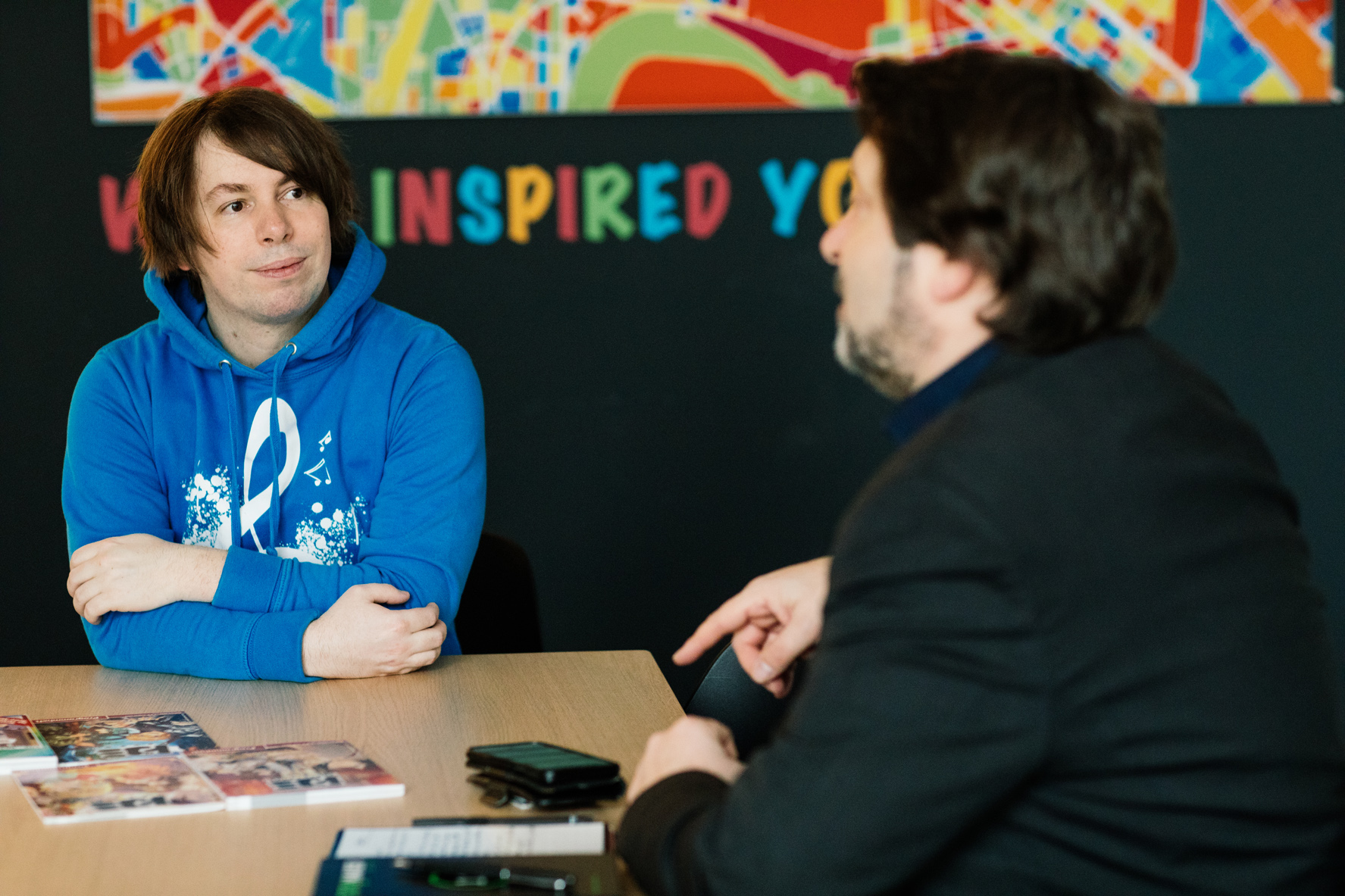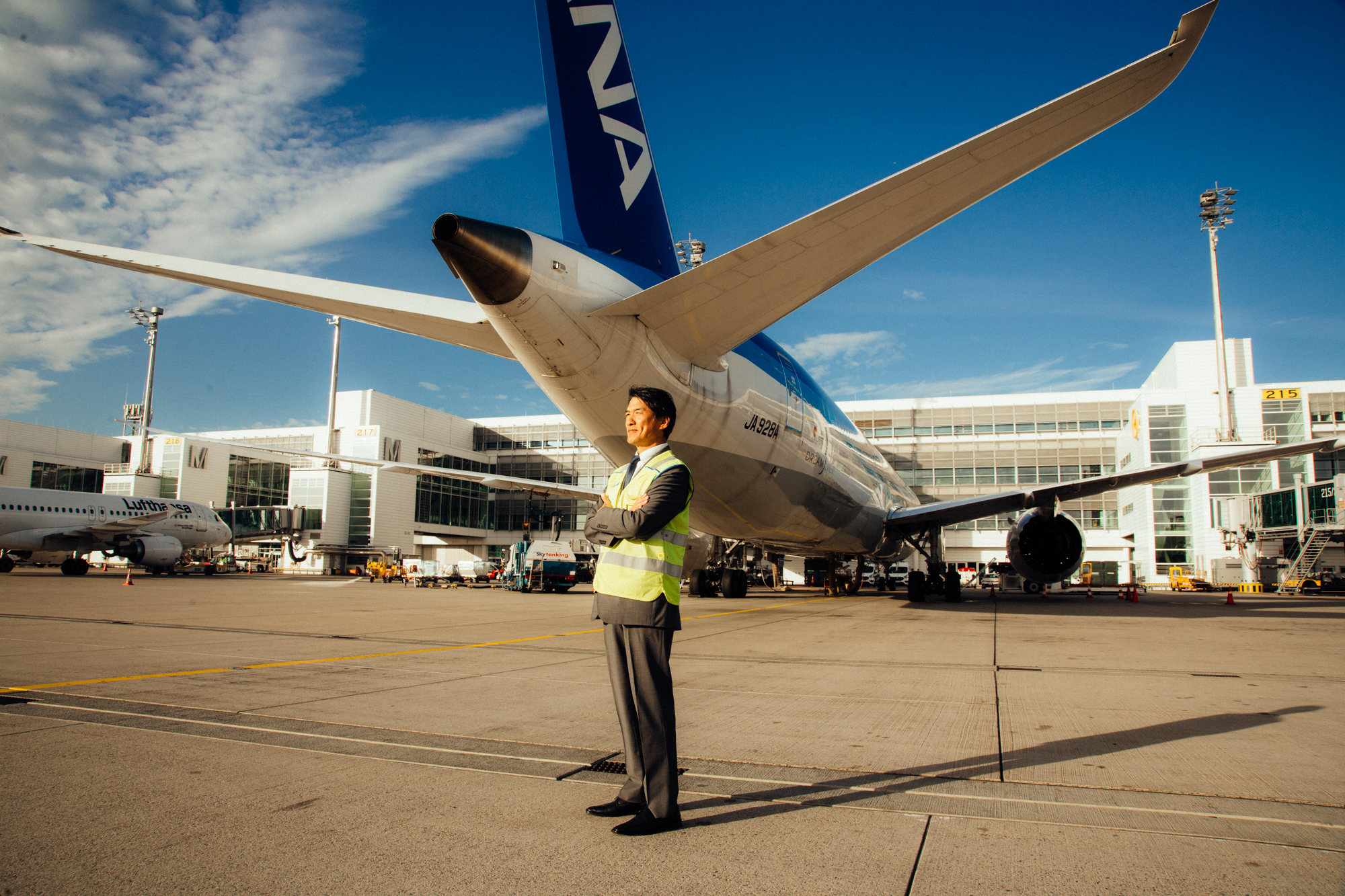DoKomi began as a spontaneous idea of six friends. Today it has become Germany’s biggest anime and manga convention, with over 100,000 visitors and sales in the millions. Although one would have expected something different after Corona, ticket sales this year were already higher than ever before, even half a year in advance. J-BIG talked to Andreas Degen, co-founder and one of the two main organisers of the event, about the beginnings of DoKomi, the importance of the pop culture fair for the community and development perspectives for the future.
J-BIG: How did everything start with DoKomi?
Andreas Degen: It was fifteen years ago, in 2008. We were six friends enthusiastic about anime, aged between 13 and 20, and we were meeting at the Rheinaue amusement park in Bonn, just like every year. We were talking animatedly, and that’s when that fateful sentence came up: “Hey, let’s have a convention sometime.” At that time, there were already hundreds of cosplayers, otaku, anime and manga fans who met on Saturdays in Duesseldorf. They were all schoolchildren and young students who arranged to meet via the web platform Animexx. Animexx is a forum for anime fans and was a central meeting place for the scene back then, before Facebook existed. So all these people came together but basically had no “roof over their heads”. We thought it would be nice to change that and give people a place to rally to. Everyone on the team then came up with more ideas, such as setting up a café or designing a place where sketch artists could come together.
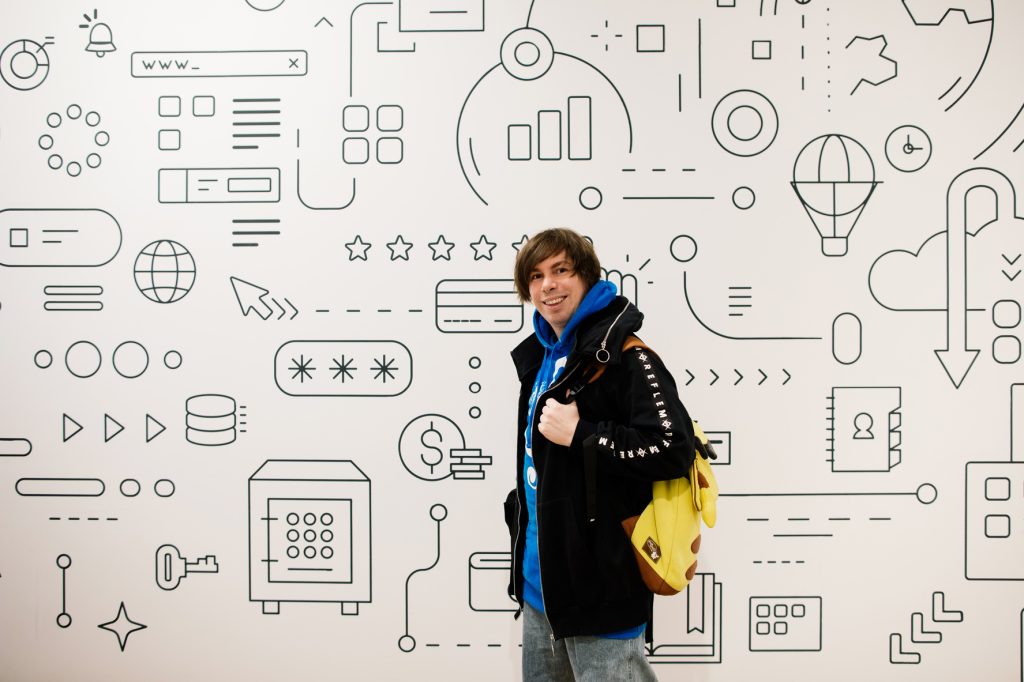
J-BIG: What was the convention scene like in Germany at that time?
Andreas Degen: There were already two big anime conventions in Germany, the Animagic and the Connichi. In addition, there was the Leipzig Book Fair, the Frankfurt Book Fair and many smaller fairs that already offered a Japanese programme. We had originally aimed for something small, about 300 people. But when we started planning and uploaded the event for all to see in the event calendar on Animexx, we realised pretty quickly that not only 300 people would be showing up – after a short time, there were already over 1,000 registrations. And it didn’t stop there. So it came to the point where, already in the first year, we had to change the location and event date.
Free Subscription
“J-BIG – Japan Business in Germany” is the e-mail magazine dedicated to Japanese companies and their business activities in the German market.
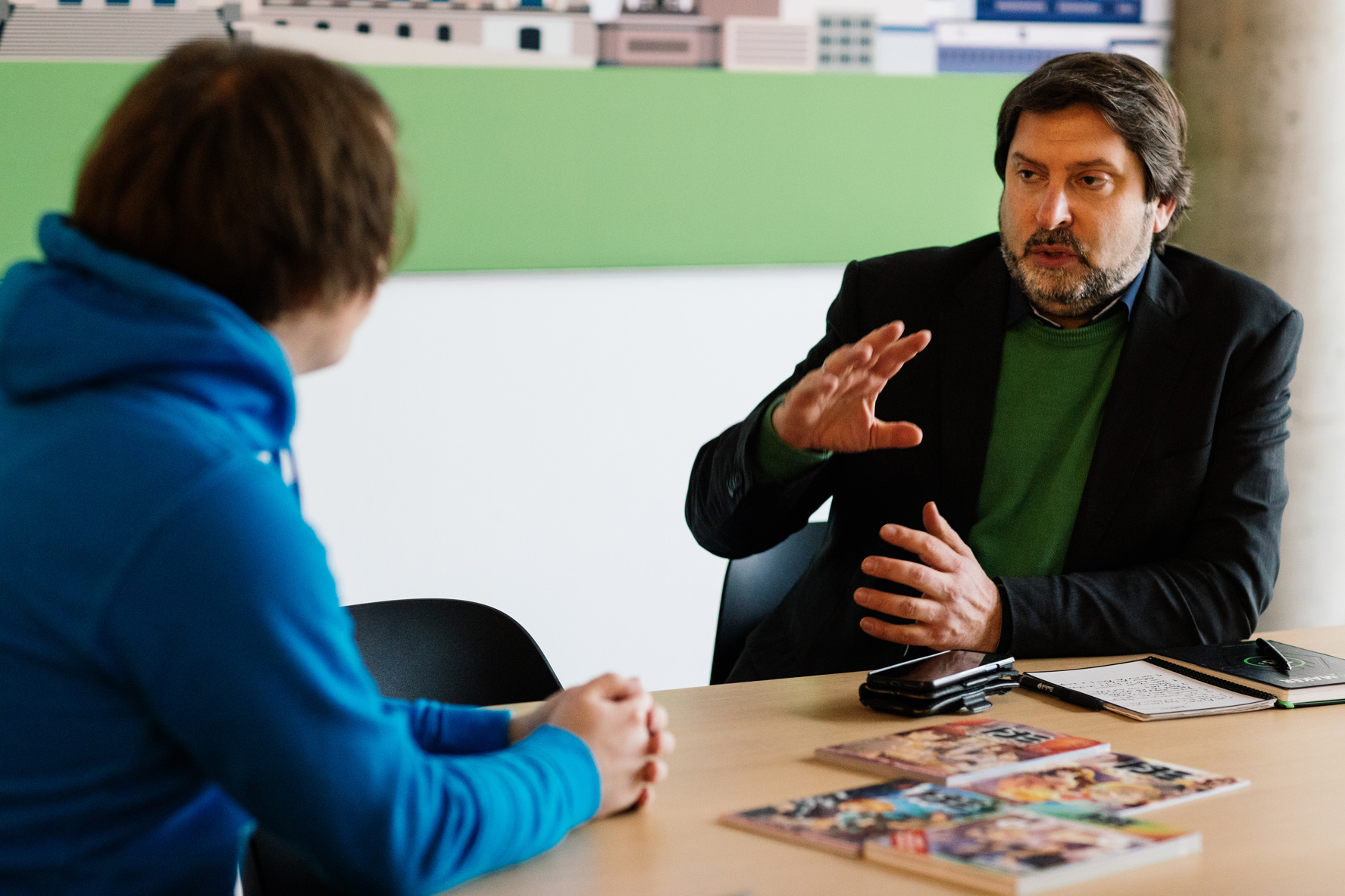
J-BIG: What made and still makes DoKomi different from other conventions?
Andreas Degen: One of our principles is that we innovate. We want to incorporate something new every year. The first innovation was that we created a Maid Café, a Japanese event scene café. Nowadays this is fairly common at conventions, but it didn’t exist back then. Furthermore, we set up an Artist Alley, where artists and manga creators can present and sell their work. We took our cue from the world’s biggest fan artist and fan mangaka events because we loved the spirit of these “by fans for fans” events. We originally started with ten artists and now have almost 2,000 applications, of which we can accept about 1,000. An incredible amount has happened in the last 15 years. In addition, we are definitely the organiser in the scene that offers the most extensive programme while not having the highest ticket prices.
J-BIG: Let’s go back to the beginning: Where did the first DoKomi finally take place?
Andreas Degen: The first DoKomi took place in the “Burg-Wächter Castello” of the Free Christian School in Duesseldorf Reisholz. 1,800 people came together in the adjoining multi-purpose auditorium. Many of the people we work with today have been with us since that first year of DoKomi. We stayed in this location for the first three years, but then there was the tragic 2011 Love Parade year, which changed a lot in the event industry. We were close to exceeding our capacity limits and had to look for alternatives. The city of Duesseldorf then supported us in moving to the Congress Center Duesseldorf and holding the DoKomi there.
J-BIG: So DoKomi has received support from the city?
Andreas Degen: Yes, absolutely! In fact, Dr. Marie-Agnes Strack-Zimmermann, who is known today for her work in the Defence Committee, was mayor of Duesseldorf at the time and was one of the first supporters of DoKomi. In addition, the Japanese Consulate General in Duesseldorf also supported us a lot, as the Japanese government saw pop culture as a positive means of promoting Japan’s image as part of its “Cool Japan” strategy. All this support was of a purely non-material nature, but it opened a lot of doors for us. In addition, there was the support of the German-Japanese Society on the Lower Rhine, which was our first point of contact.
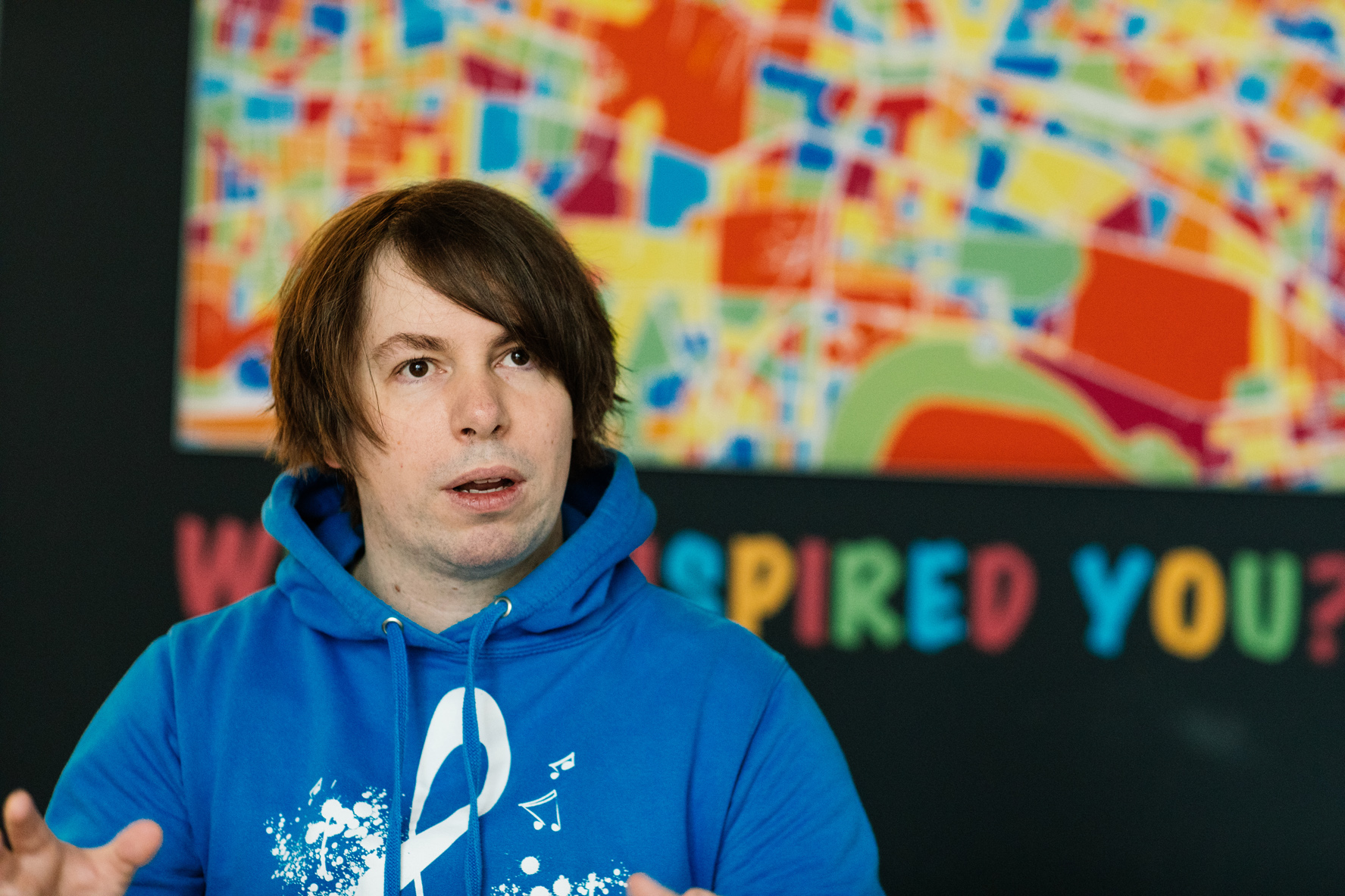
J-BIG: How was the team organised?
Andreas Degen: In the first year, we were still very inexperienced and naïve. None of us had studied event management, so a lot of things were quite daunting and turbulent from a professional point of view. After the first DoKomi, we thought a lot about what we had done wrong. We had sort of expected people to tear our heads off, because of course many things went wrong. But actually, a lot of people were happy about the event, and we got a lot of positive feedback.
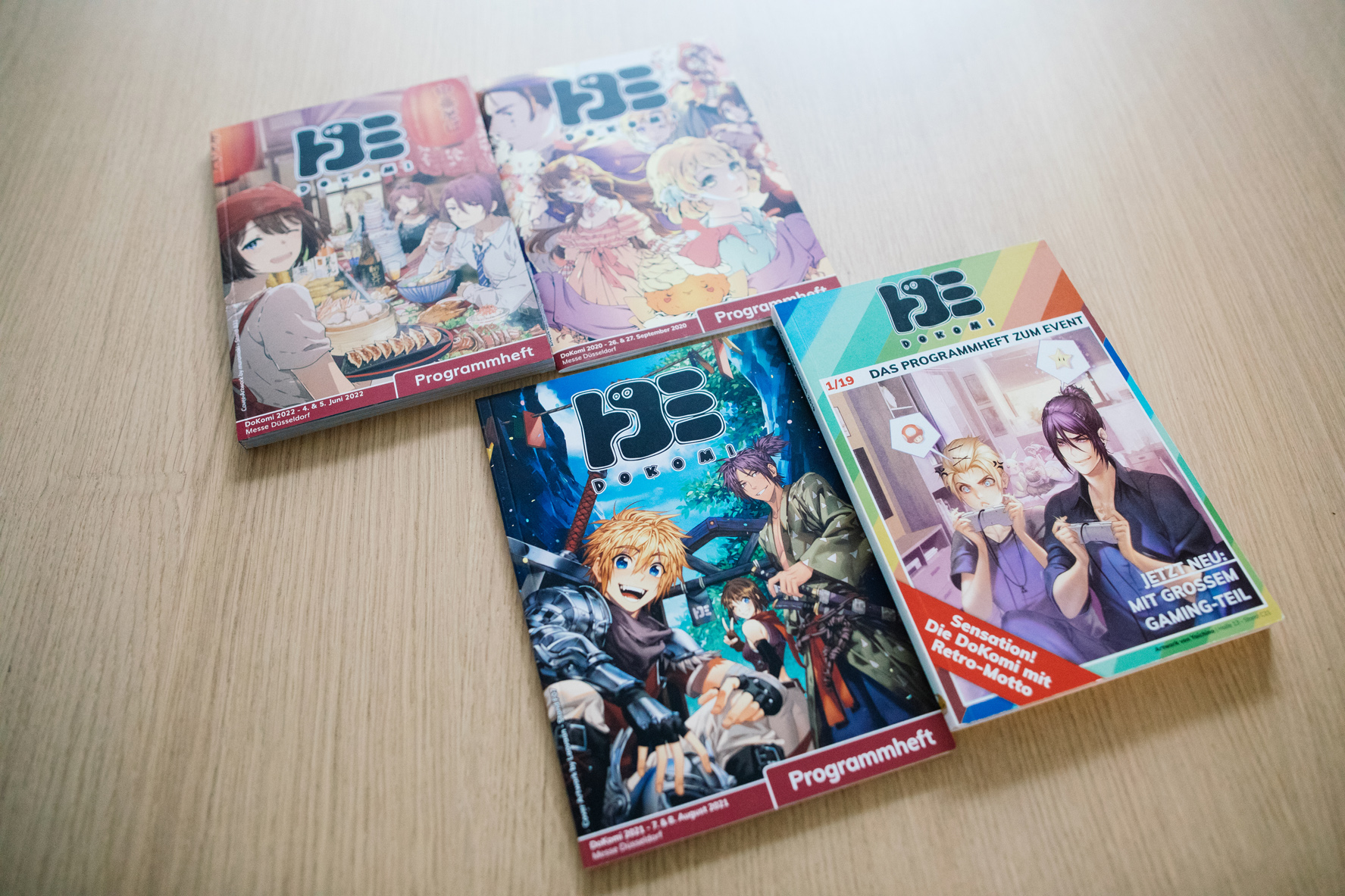
J-BIG: What happened next and how did the enormous growth of DoKomi come about later on?
Andreas Degen: Back then, we organised DoKomi in our spare time. Today we are a limited company and the biggest manga and anime convention in Germany. By the way, that wasn’t our goal. We didn’t want to be like the big fairs Animagic or Connichi, but to do our own thing on a small scale. But the reality was different in that more and more people wanted to come and it just wasn’t very pleasant to have to send them home again for capacity reasons. We were sold out every year from 2011 up to and including 2016, even though we expanded our capacity every year. It was our desire to make it possible for everyone to attend who wanted to. So we had to grow. But that also brought a lot of changes and we had to rethink some things. For example, our cosy and familiar flair was lost when we moved exclusively to exhibition halls one year. So in subsequent years, we laid down a lot of carpet and came up with a different layout structure. From 2017 to 2019, there was an extreme growth spurt, but by then we had grown big enough that we could still offer tickets to everyone. There were new programme items every year, which is why our programme booklet has now grown to over 200 pages. In 2011, we introduced a Cosplay Ball, which has since become one of our most popular programme items. The 1,500 tickets for the ball are always sold out very quickly.
J-BIG: What else has changed over the years?
Andreas Degen: We have become more and more professional. For critical infrastructure, we no longer rely on volunteers but on professional staff, for example in the form of a security company. That’s important to me because I also want all the volunteers to do only fun tasks, like scurrying around the community area, helping with art stands or organising a tournament. What surprises me is that visitors are not very price sensitive. Many pay €80 for a ticket without hesitation, or even €90-€100 at other events. We had to increase the price because of the pandemic and inflation, and because our expenses have grown. But we still try to keep it within reasonable limits, because most of our visitors are traditionally pupils and students, who might not have that much money at their disposal. Also, in the past, artists had to put up with a lot when they wanted some money for their creations. Nowadays, the drawings and the art behind them are more appreciated and people are generally more willing to pay for them. There are many artists here who have started their own business and can make a living from it. They have built up their communities online, and conventions like DoKomi are a very central building block for them as places to meet their target audience and sell their art.
J-BIG: Where does this willingness to spend money come from?
Andreas Degen: In my estimation, it has become more important for people to participate in something like this. Fans want to go to conventions. This year, in January, we had already exceeded the amount of Saturday tickets we sold last year. Attendees have never bought their tickets this early, which took us a bit by surprise, because we were somewhat uncertain due to the increase in prices. I also think that maybe people have a bit more money than they used to, because on average, they have gotten older and are earning a living themselves. A lot of fans have been going to conventions for 15, 20 years, but now they’re not 15 anymore and they even bring their kids. But there are also always new young people coming along, like schoolchildren and students.
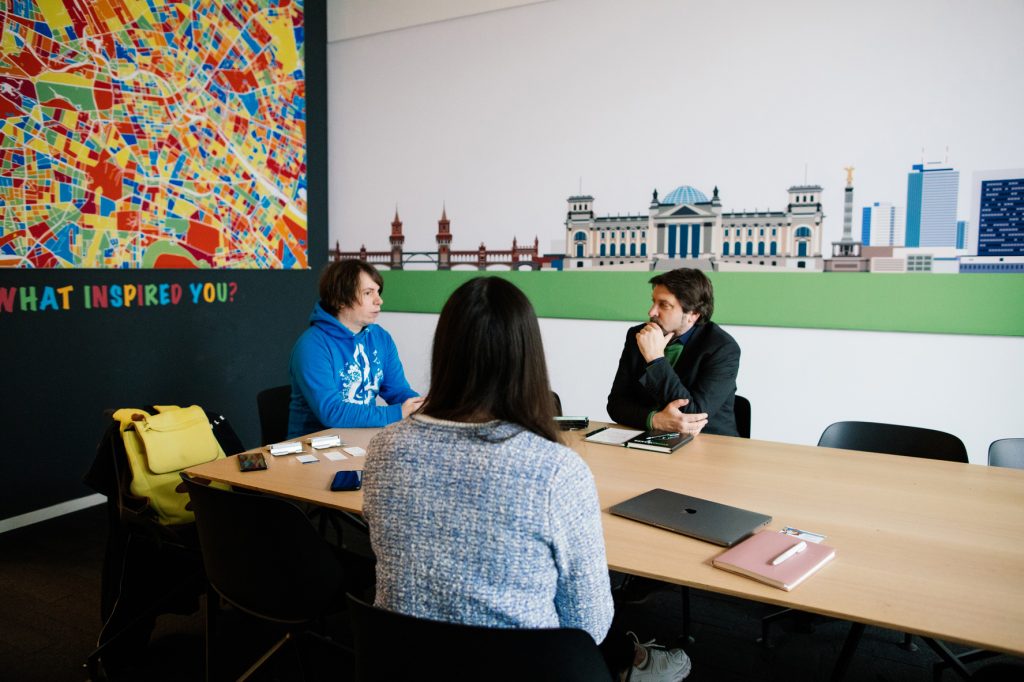
J-BIG: That sounds like a lot of new blood in the scene!
Andreas Degen: There is a constant influx of new young clientele in the anime and manga sector. The scene is currently growing tremendously thanks to Netflix and the like, and also thanks to manga. You can see that there is interest in the subject matter and that anime and manga have arrived in the mainstream. That seemed unthinkable before. We thought there were only 5,000 fans and we were doing this convention for a few hundred people. And when you go to conventions, you always see the same people. Now we’re talking about the fact that everyone has heard of anime, manga or cosplay. Not everyone might do it or like it, but they know about it. Young people grow up with this stuff because anime and manga are everywhere in media culture.
J-BIG: What did organising the first DoKomi cost back then, and what dimensions are we talking about today?
Andreas Degen: For rent, booth rental, personnel, licence fees and so on, costs were in the order of €16,000 at the beginning. A weekend ticket cost between €12 and €15 and we had 1,800 visitors. Today, we are easily in the 7-digit range as far as event costs are concerned. This year, for the first time in the history of DoKomi, there will be a third day. Energy costs alone will likely increase our costs by 50 percent in some cases. We are currently calculating in the single-digit millions, and a 3-day ticket costs between €75 and €79. The challenge that we are growing and getting bigger every year, sometimes in a very short time frame, also leads to a certain amount of risk that we take every year. I’m usually very conservative when it comes to estimates and like to calculate only with the people who attended the previous year. But then there are more every year, which leads to more challenges and costs. For example, this year we added another entrance to the infrastructure.
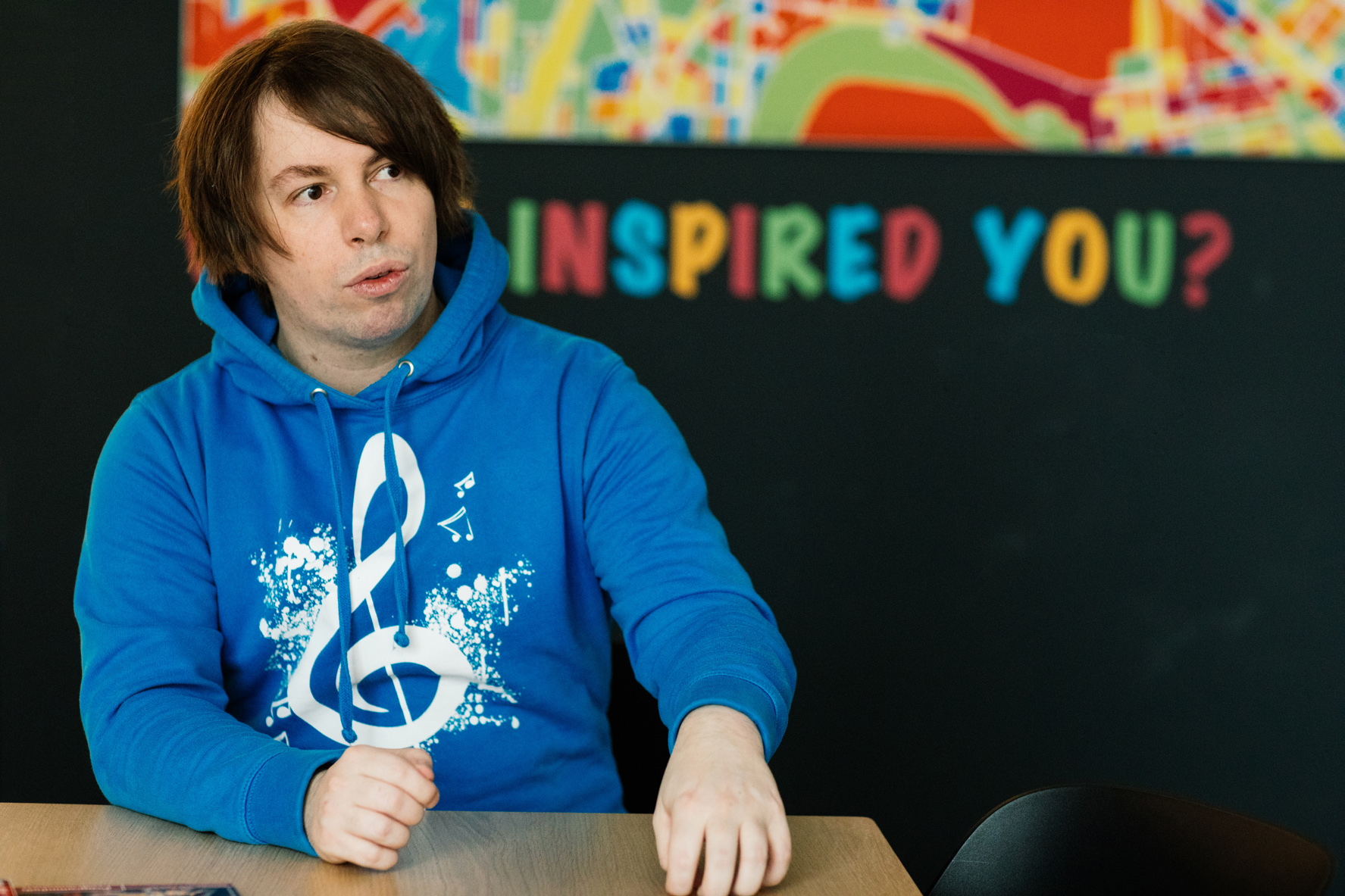
J-BIG: Did you start as a registered club like some other events?
Andreas Degen: No, we were never an association, and we made that decision very consciously. There is a view that we used to be so small and now we are big and commercial. But we are just as much “by fans for fans” as we used to be. Maybe it doesn’t look that way from the outside, but if you look around our team, you’ll see it immediately. Most of the conventions started out as club conventions, but we felt that a club structure was very sub-optimal for an event, partly because the organisation has to get all its expenses approved by the board, which is usually six or seven people, and you have to get everyone’s approval for new projects. This is a hurdle that can take away a lot of creative freedom and also slows down processes. With us, there is a clear structure, and you know exactly who to contact when you want to make an investment. We first were a GbR, then a UG and only now a GmbH, because it was not so easy for students to raise the required share capital of €25,000. We built it up step by step over the years. It was a long but very deliberate process that I would do again any time.
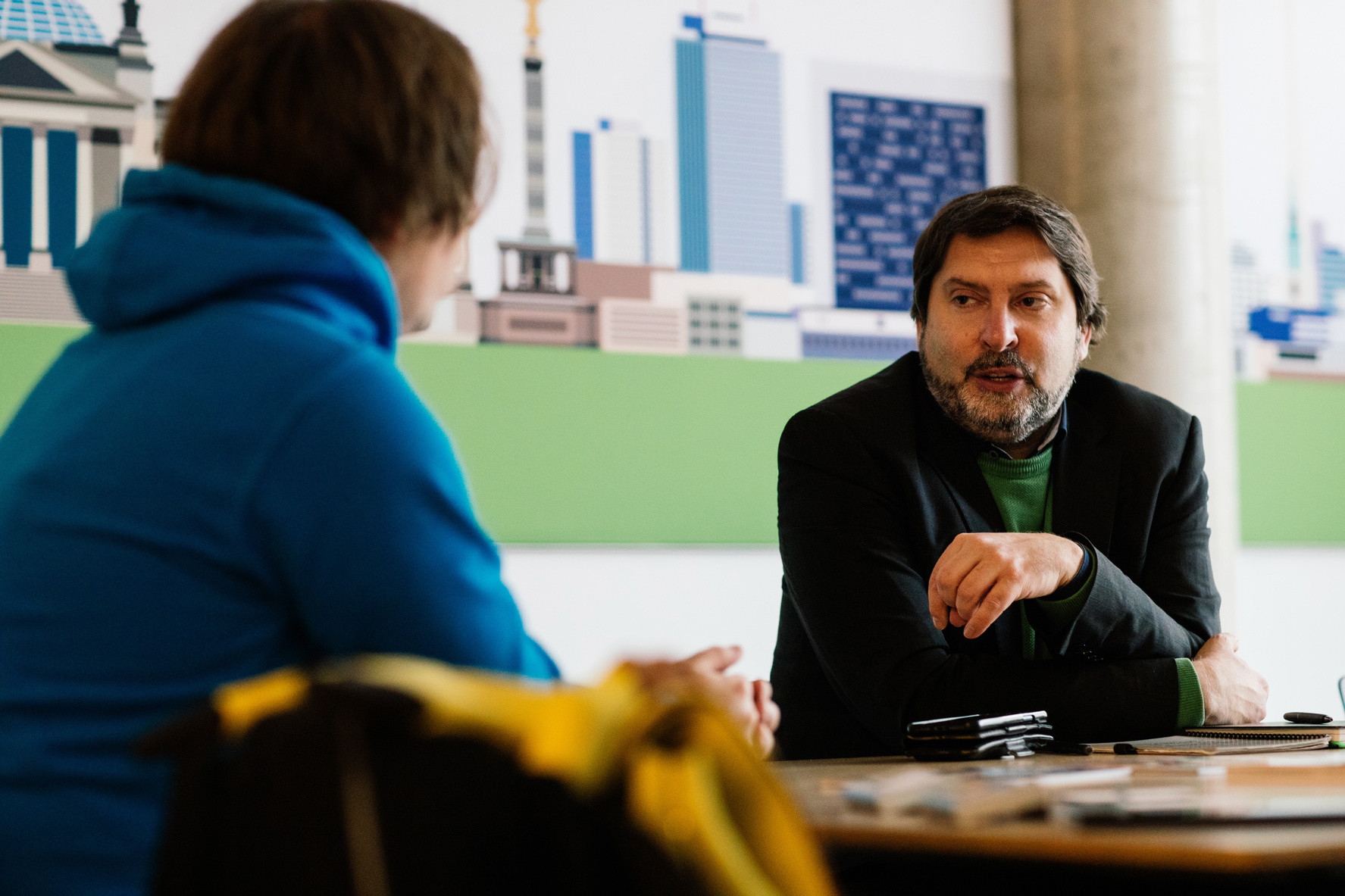
J-BIG: How is DoKomi organised on a staff level today?
Andreas Degen: In the beginning, teachers and school staff helped us. We also had between 20 and 30 volunteers. Today, the organisation consists of almost 60 people, including the office team. On the organisational side, there is a team of volunteers who look after a certain area, for example the stage, the Maid Café or the J-Rave, our party in the evening.
There is also a small full-time team of seven people. The office team’s job is to centralise communication between these organisers and make sure they all have the resources they need. In fact, most of our team have been with us for about 15 years. Turnover is not as high as it used to be and these are all people I stand behind one hundred per cent. When new people join, they usually open up new areas and so the organising team has grown over the last few years. This year, for example, there will be a new fashion section. We also have a team of volunteers who support the event on site. All in all, we are about 600 people.
J-BIG: Do volunteers ever become employees?
Andreas Degen: Yes, that was the case with our office team. This year we were able to hire permanent staff for the first time, although we would have liked to do it earlier, and we are now in our 15th year. These are all people who have basically built up their own jobs because they have become so necessary and so good that we can no longer do without them. We want to offer them a perspective so that they can stay with us and turn their hobby into a profession. But I always proceed very carefully and step by step, because if I hire someone now, I want to be able to guarantee their salary in five years’ time. I think it would be irresponsible to hire a lot of people now because I can, when I don’t know if I’ll be able to pay them in the future. I would very much like to be able to give more people the prospect of turning their passion into a career, and I would like to expand that as much as possible.
J-BIG: DoKomi was one of the few fairs that took place live on-site during Corona. How did you manage that?
Andreas Degen: Usually, we always take place around Pentecost but moved to August and September 2020 because of the pandemic. But I have to elaborate a bit, because it’s important to me that this is understood correctly. At the time, we received a lot of criticism and were accused of not caring about the pandemic. That is not the case at all, and we have a huge responsibility to our visitors and all participants. In fact, we didn’t know until three days before the convention whether we would be able to go ahead. It was very stressful and difficult. But we went through with it because we thought it was important to people.
I see the convention scene as a network and a base for a lot of people to exchange ideas, on an economic level, but also on a social one. Many people have found a home in the scene and have flourished because of the recognition they have received here. We also have, as mentioned, a number of sketch artists and freelancers who go from convention to convention and make a living out of it. It was important to me that we continue to provide a platform for these people.
I made this decision when the Leipzig Book Fair was cancelled, which was a blow to all the exhibitors and illustrators who lost a major source of income. We received feedback from many exhibitors that we had saved them through the year. I saw the whole social and economic network that had been built up disintegrate. And I was worried about the impact the pandemic would have on our whole scene, as show groups broke up because they couldn’t perform, and sketch artists had to find something else to do. No one knew how long the pandemic would last and what the long-term effects would be on the scene. So we let the event go ahead because we saw that we could do it safely.
We have a huge exhibition centre, which made social distancing possible. We expanded the event space to 108,000 square metres. We went from 55,000 visitors in 2019 to 30,000 visitors over the whole weekend in 2020, which is 15,000 per day. So we halved the number but doubled the area and made masks mandatory. As there were no tests yet, we also did fever scans at the entrances. The following year, 2021, we worked with tests.
J-BIG: Then from 2022 onwards, things became a bit more normal again. How many visitors were there last year and how many do you expect in 2023?
Andreas Degen: We’ve grown tremendously in the last year, and we’re seeing great demand this year, as well. In 2022, we had a total of 75,000 visitors over two days, and we limited the number of purely visitor tickets to 32,000 per day. The rest were exhibitors, press and helpers. This year, in January, we already exceeded 32,000 registrations on Saturday, and Sunday and Friday are at similar levels. So with the introduction of the third day, it’s realistic that we’ll get over 100,000 and maybe even approach 120,000 visitors. It’s pretty amazing and we didn’t expect things to go this way. I am really grateful that we have such a good partner in Messe Duesseldorf and the Congress Center Duesseldorf, who have been with us through thick and thin for 15 years. As a platform close to Japan, you feel very well taken care of and appreciated there.
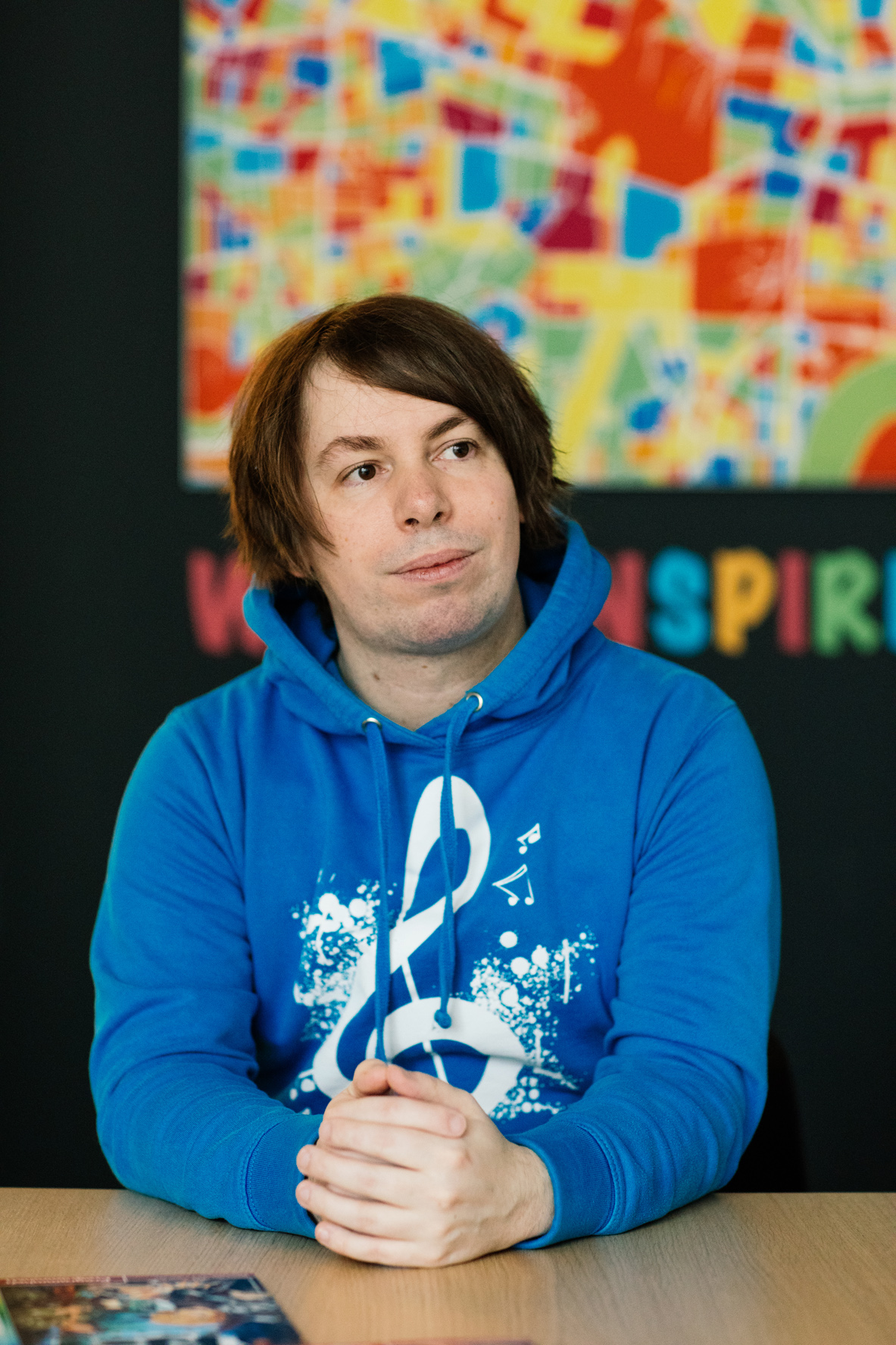
J-BIG: Was there also an online option during Corona?
Andreas Degen: We held so-called DigiKomis. I would like to thank our team for this, because it was a lot of work and online conventions are not something you make money with in the event industry. But we did it for idealistic reasons. For our original date around Pentecost 2020, we rented a small studio and put together a stage show that we streamed live on Twitch. Then came VTubing, where people create content as anime avatars, produce videos and stream them. It really took off in the English-speaking world in 2020, and I started VTubing in 2021. I didn’t know if I could continue to put my energy into DoKomi because there was so much lethargy and uncertainty in the difficult winter of 2020/2021. Then I networked in the scene and quickly realised that we could integrate VTubing well into DoKomi. So we actually did two more DigiKomis with a focus on VTubing, which worked well from home, and invited some of the biggest VTubers in the scene. This ended up being incorporated into the physical DoKomi as well, in the form of a concert of VTubers at the convention. When Amazon approached us as a sponsor, we organised a DigiKomi x Amazon in September 2021. This year, in March, we had another collaboration, which allowed us to rent a studio and have a reasonable budget. So it makes sense and is fun. I think all these things have contributed to the fact that we can now show such growth and are in a strong position.
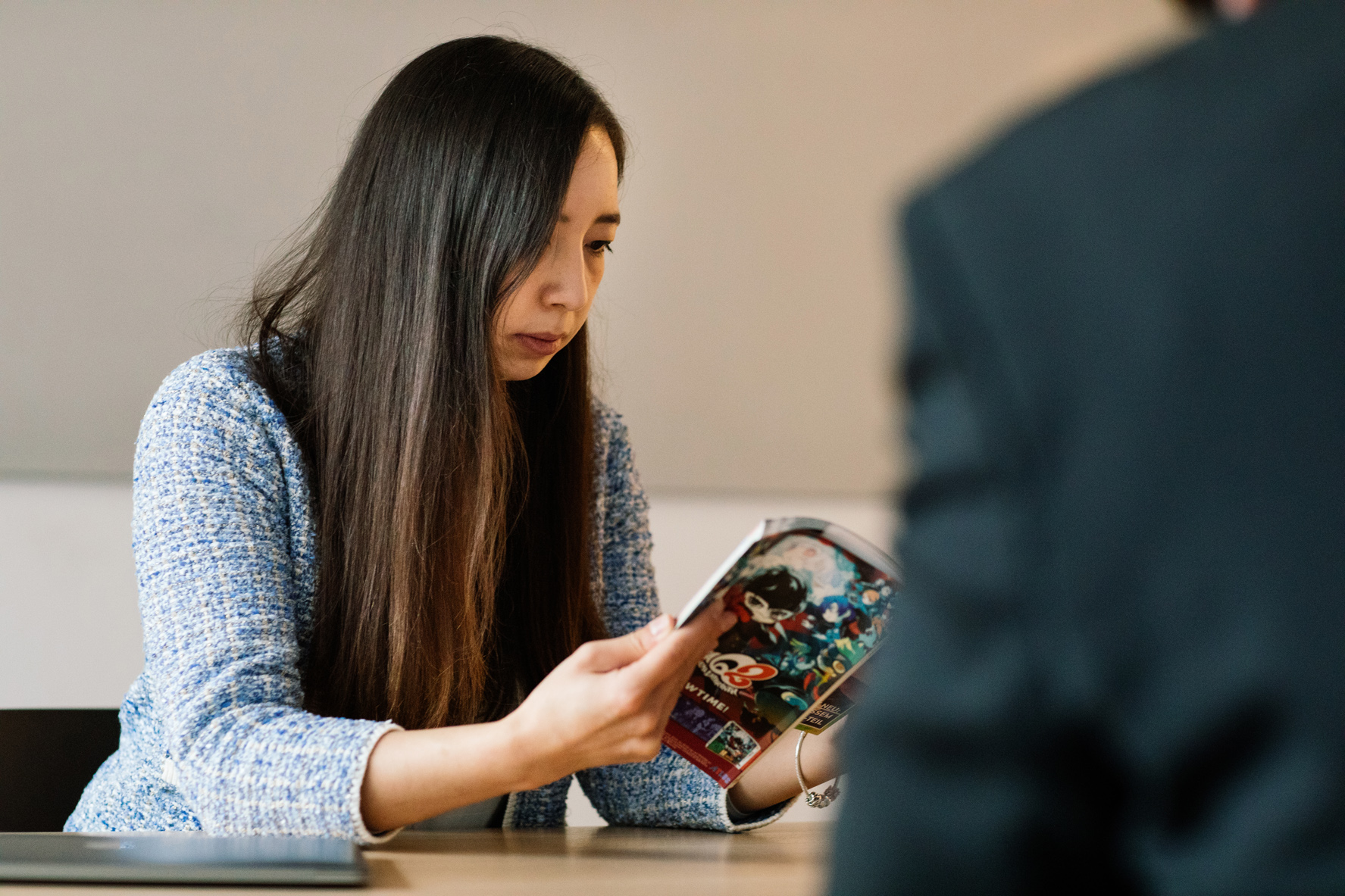
J-BIG: Does DoKomi cooperate with other companies to finance itself?
Andreas Degen: We finance ourselves 70% through tickets, 30% through exhibitors and other means, including sponsorship. Tickets and exhibitors work very well for us. We are strongly financed by the community, and this enables us to act in their interest.
J-BIG: How much cooperation is there with Japan? Are there any contacts with Japanese company headquarters?
Andreas Degen: We have more contact with our German counterparts. But we also have many conversations with Japan, mainly with music companies and music labels when we invite guests of honour, but also with publishers and potential exhibitors. But you have to remember that it’s still a long way from Japan to Europe and it takes a long time to build something. We are taking more of a long-term view here.
We want to set up a B2B area at the convention and are working with the Deutsch-Japanischer Wirtschaftskreis (DJW). At the moment, there is a “Hiru no Kai” in the programme, and we want to expand it in the future. But we are doing it step by step, because when we get Japanese visitors, I want them to be happy and have a good experience with us.
J-BIG: Where do you see DoKomi in the long term and in what dimensions are you thinking for the future?
Andreas Degen: Our motto always was: “We are a small family and likeable”. I would like us to stay that way, but it gets harder the bigger we get. The more people are involved, the more you run into someone who might begrudge you your success or be offended by something you do. This conflict is very difficult for me personally because I crave harmony, but unfortunately, it’s also hard to avoid. By now, I would say that we are thinking in terms of “the Japan Expo for Germany”. With a six-digit number of visitors this year, we are the biggest pure anime-manga convention in Germany. The Japan Expo in Paris currently has around 200,000-300,000 visitors, but it also lasts four days. It’s not our explicit goal to reach that size, but it’s possible that we will. Whether or not we overtake Japan Expo in Paris is not so important to me. First and foremost, we want to be inclusive.
J-BIG: What concrete ideas do you have for future DoKomis?
Andreas Degen: There are three aspects I would like to work on in the long term. Firstly, I would like to further expand the B2B area. Many people now make their living from conventions and pop culture. Incidentally, I have a very optimistic outlook on the future of trade fairs. When people ask whether we still need conventions in the digital world, I say: Even if people meet online, they still want to meet in person at least once a year. That’s why I think trade fairs are a sensible concept for the future. Secondly, I would like to provide a central platform for the digital scene with DoKomi. People should be able to meet and find their friends online, build communities and perhaps also find the opportunity to monetise their content, for example if they are streamers, content creators or TikTokers. And last but not least, we thirdly would like to bring more Japanese participation to the convention. Because the bottom line is that every publisher and every retailer who is there from Japan legitimises the event and makes it more authentic, somewhat more Japanese. We as a GmbH want to build a bridge between Japan and Germany and bring a bit of the Akihabara feeling to Germany.
